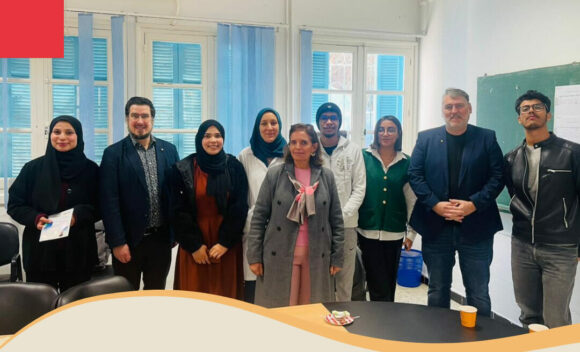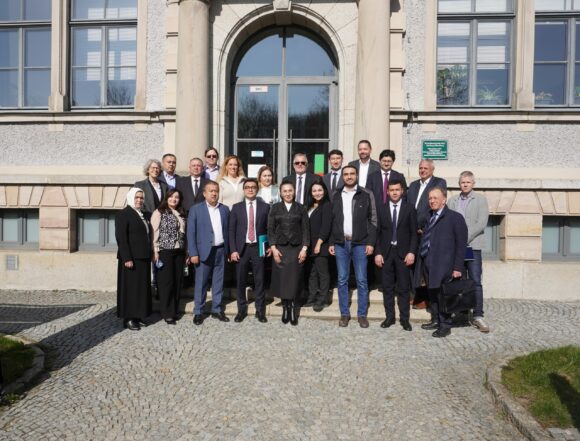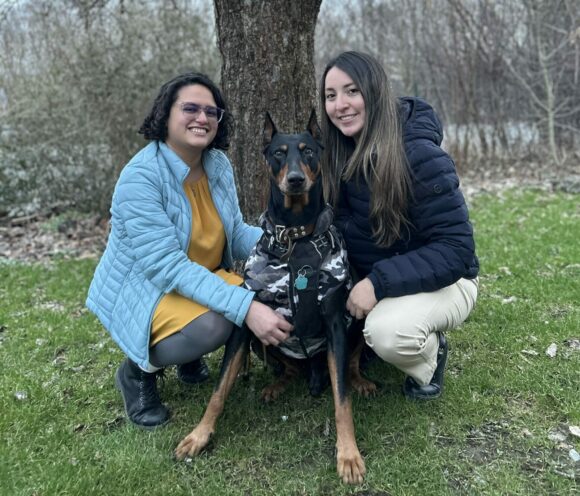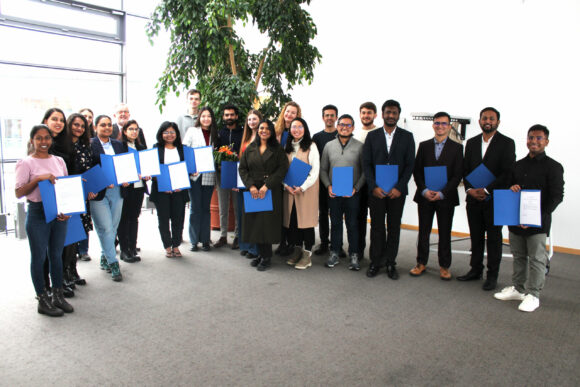If you ask academics about their most memorable moments during their studies, studying abroad usually lands at the top of the list. Erasmus+ and DAAD student mobility programs thrive on university exchange. The many positive stories of getting to know new people and their culture remain in firm memories – something you usually only know from summer vacations.
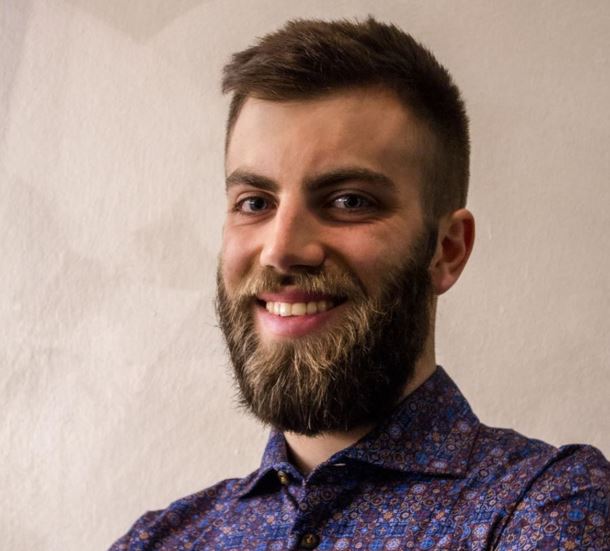
Image: Hof University of Applied Sciences;
Of course, the ongoing pandemic also has a major impact on exchange programs, when both mobility to the university of choice and mobility locally are restricted
Online lectures instead of Franconian culture
No BOOM parties or trips to the city to tell fellow students, friends or family back home about. This is what happened to Elia Castagna from our partner university in Brescia, Lombardy: Instead of face-to-face teaching in the lecture halls or white sausage with pretzels in the café, there were online lectures in the room of the newly built dormitory. Thanks to the excellent work of the digitization project team, this is running completely smoothly, as we all know. Nevertheless, there is of course a lack of getting together between students and getting to know Hof’s flagship events, such as the Hof Film Days or the many well-known festivals.
Conscious decision for Hof University
Elia is a mechanical engineering student and made a conscious decision to attend lectures at Hof University of Applied Sciences because of its good reputation and the opportunities it offers. Unfortunately, due to the current situation, one module could not take place and he was suddenly 5 ECTS short to stay on schedule back in Brescia. Jörg Noldin from the International Office knew about my good network to Brescia and asked me at the beginning of the semester whether we at the ibp had an exciting research project in the context of which Elia could do a substitute course and still earn the 5 ECTS. This email and our meeting turned out to be an absolute stroke of luck. We immediately arranged a video meeting, quickly established common passions such as the mountains and the associated board sports.
Wine research instead of beer drinking
Also the determination on a topic, whose processing enriches us and makes fun for him, was found quickly. “VINOFOL,” was his answer when he looked at the ibp’s projects on our homepage. Even though he himself is more taken with the drinks of the Meinel sisters, he liked the idea that reflective foils could possibly be used to improve wine quality in Central German vineyards.
The goal in the project is to use indirect solar radiation by reflecting the wavelengths that are only beneficial to the vines (blue and red light). Together with the Freyburg Winegrowers’ Association and the Anhalt University of Applied Sciences, a vine construction with films from the ibp was created in an experimental field, which provides additional sunlight exposure from the flowering period in April to the grape harvest in September.
Vine construction for better light effect
With initial success: In the context of the tested wines, slightly improved values were observed in the white grapes compared to the grapes that were not additionally illuminated.
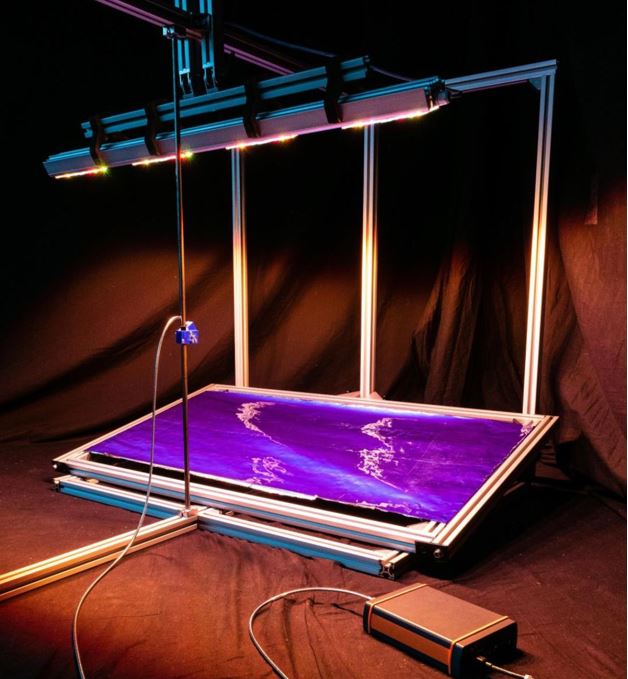
In order to investigate the exact relationships between the distance and angle of the light source as well as the surface and formulation of the foil on the wavelength and intensity of the reflected light, the development and application of a foil test rig was the content of a work package planned at that time. And this is exactly where Elia, with his CAD knowledge and penchant for tinkering, came in at the perfect time: we agreed on getting to know each other and on safety instructions, taking into account hygiene measures, and of course on the concretization of the project goal. Thanks to the study office and Prof. Dr. Reichel, the registration in PRIMUSS for this research project with a processing time of 100 h was also completed quickly.
Help in the MakerSpace
It did not take a week until Elia convinced us directly with a first draft. A few technical adjustments and Elia was already able to show us by means of simulation what was to be used in our laboratories a few weeks later. All components could be ordered on time. Parts that could not be ordered due to the simple yet ingenious design, Elia had produced from the 3D printer thanks to the new Makerspace. A super flexibility that we rather still have to get used to.
In the meantime, Elia diligently followed his lectures. Since his room has a direct view of the Einstein1, he was always accompanied by the colorful illumination during the evening lectures. Since the Hofer Land could fortunately also be walked during the lockdown, at least during the day, Elia could thus also benefit somewhat from the landscape of his desired location. This made the homesickness for the pre-Alpine Brescia fade away a bit
Project order solved, beard shaved
Elia stayed super on schedule and had already finished assembling the trainer in early December 2020 and tested it in the photo studio (under the supervision of Prof. Heym), excluding external light sources. At this time, he had also shaved off his full beard, which he had cultivated for years, after beard wearers were, unsurprisingly, advised to trim it so that masks could also fulfill their function. At least he had an upper lip beard, which made him even more sympathetic.
Within the project framework, there was still time to put the test into operation and to test the first foils. After a few adjustments, the work was done and everyone was happy. The final project report, with its technical and aesthetic accuracy, was the icing on the cake of the already surpassed foil test stand: Grazie Mille, amico mio!
Good German-Italian relations
The Università degli studi di Brescia has been our partner since 2015 and has already convinced several Hof University students to study there, all of whom benefited from the charming city and the great people. Founded in 1982, the state university has 14,000 students and about 500 academic staff. The dear colleagues from the Faculty of Mechanical and Industrial Engineering are also closely connected with the ibp through research projects, both scientifically and in terms of friendship, and are an integral part of the International Teaching week.




